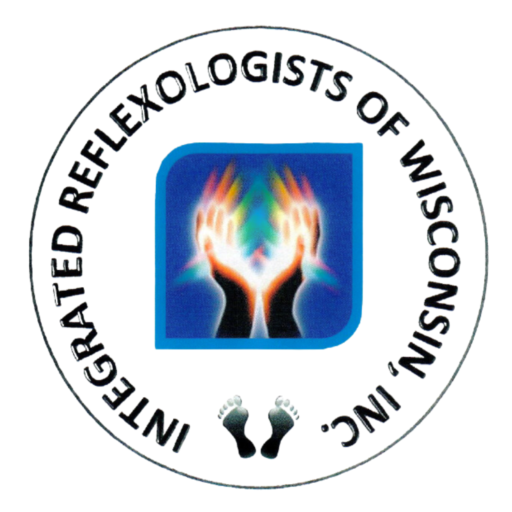Complementary Therapy Consumer Awareness
INTEGRATED REFLEXOLOGISTS OF WISCONSIN, INC.
Office: 640 Main Street, Belgium, WI 53004-0161
This organization was organized to advance and support the competency and professionalism of Reflexology practitioners and the field of Reflexology in all its aspects. This organization will unite Reflexology practitioners in Wisconsin and offer educational and networking opportunities.
NEWS RELEASE
For Immediate Release…
COMPLEMENTARY THERAPY CONSUMER AWARENESS
As complementary therapies become more main-stream, consumers should know if their Reflexologist has had proper training to protect themselves. Many people offering Reflexology services around the country claim to be Reflexologists without proper training or insurance.
Reflexology uses special techniques to work points, called “reflexes” on the feet, hands ears and head.
The main goals of reflexology are to relax the body, improve the flow of blood, lymphatic fluids and nerve
impulses. Reflexology also unblocks and stimulates the bio-electrical energy fields throughout the body.
This allows all of your body systems to come into balance to heal itself. Reflexology has hundreds of
studies from around the world showing how this unique modality can assist in pain and stress reduction as well as restoring body functions.
The Reflexology Association of America (RAA), the national association for Reflexologists, requires 300
hours to training to be classified “Professional” in the field. The American Reflexology Certification Board
(ARCB), a national independent Reflexology testing board, requires 200 hours plus additional practicum in
order to be denoted as NBCR (National Board Certified Reflexologist).
Reflexology is a touch profession. Basic studies cover anatomy & physiology, history, pathology, body
mechanics, proper techniques, energy movement and hands-on practice under supervision. The hands-on
training is necessary for the health and safety of both the practitioner and their client. Continuing education courses (required by some reflexology schools as well as the national organizations) help to refine the Reflexologist’s hands-on techniques, share new information in the field, business and ethics, and help foster a strong community network of like-minded practitioners. Online courses, DVDs and or self-taught applications cannot offer these opportunities. A weekend class does not provide adequate training needed to be a professional in this field.
Many students in massage therapy schools are given introductory course in other modalities, i.e.
Reflexology, Reiki, etc. These classes are only a few hours, exposing the Massage Therapist to other
complementary therapies. But by no means should this be misconstrued as “official” training in the field of Reflexology. With that said, some Massage Therapists have pursued Reflexology training in addition to
their massage licensing/certification and are certified as Professional Reflexologists.
A trained Reflexologist can make a world of difference to your health and well-being. Reflexology is NOT
massage nor is it a “fancy foot massage.” It is a stand-alone profession.
When contacting a Reflexologist for an appointment, you may want to ask questions in order for you to
receive the full benefit that Reflexology can provide. Among the questions you may want to ask are: Are
you a professional, student or self-taught? Where did you receive you Reflexology training and how many
training hours did you complete? Do you carry liability insurance? Are you a member of your state
Reflexology association and/or the Reflexology Association of America?
For additional information, please contact:
Lila M. Mueller, CRR, ART (Regd), NBCR
rayofhopereflex@gmail.com.
Lila serves as President of the Integrated Reflexologists of Wisconsin, Inc.
(www.integratedreflexologistsofwi.org) and has previous served on the Board of the Reflexology
Association of America.
